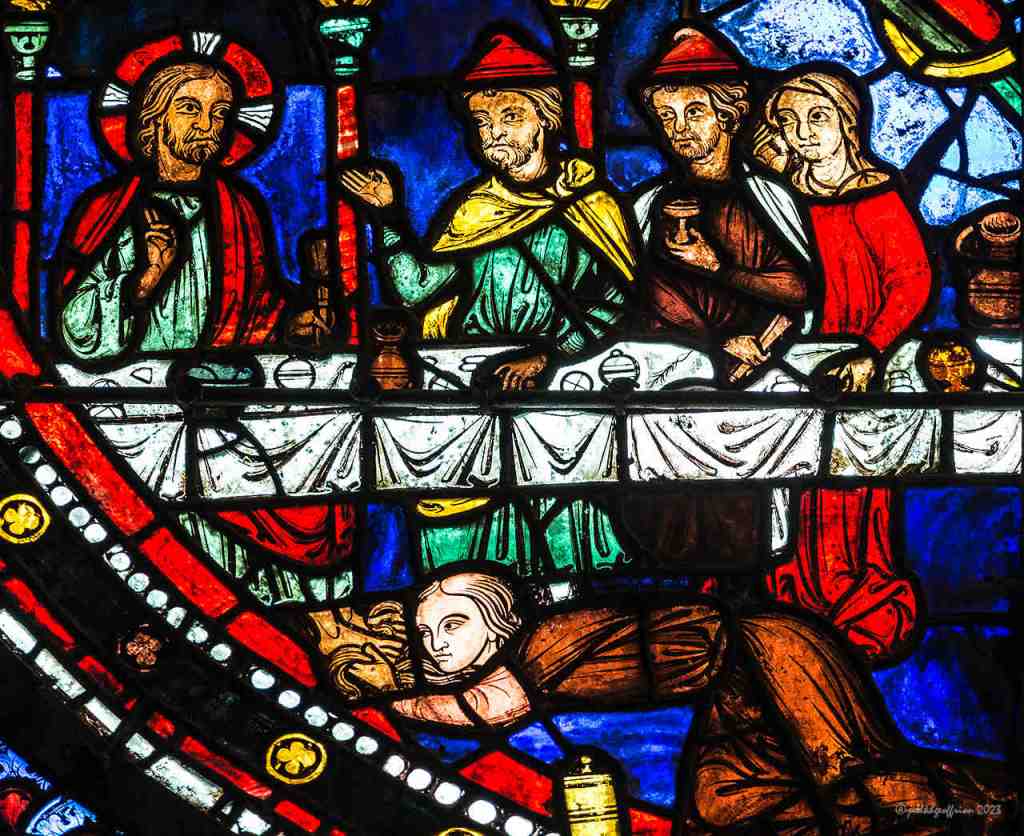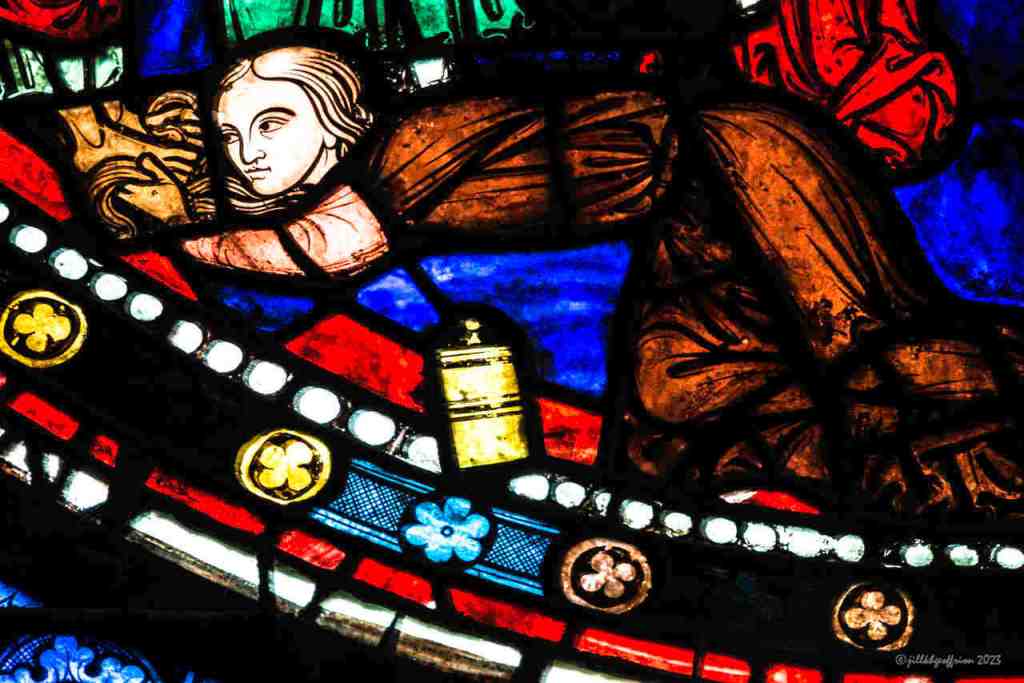“’Leave her alone,’ said Jesus. ‘Why are you bothering her? She has done a beautiful thing to me’” (Mark 14:6)

There’s a well-known story in the Bible about a humble woman who anointed Jesus in the home of a man named Simon. In Matthew and Mark, the woman anointed his head with expensive perfume, while Luke says that she anointed his feet with both her tears and the perfume. Despite the differences, all three Gospel writers agree that her behavior was both beautiful and scandalous, but for different reasons.
In Matthew and Mark’s versions, the scandal was her “wasting” valuable perfume, which could have been sold and the money given to the poor. However, Jesus rebukes her critics. She was preparing him for his burial, he explained. Of course, preserving resources and caring for the poor are normally very good things to do. But, in this special circumstance, what she did with the perfume was “a beautiful thing,” Jesus said (Matthew 26:10; Mark 14:6).
In Luke’s account, the scandal was that Jesus would allow a sinful woman to touch him (Luke 7:36-50). We don’t know if she was a prostitute, a woman who had committed adultery, or what her sin may have been. For Simon, the fact that she was a sinner meant that she was to be marginalized and avoided. However, once again, Jesus could see that unusual circumstances required an unusual response. Instead of rejecting her because of her sin, as the Law required, he saw her heart and responded to her from his heart.
Through Jesus’s welcome, kindness, and mercy, the woman experienced the grace that she desperately needed to help her back on her feet and to restore her hope. Her heart was overflowing with gratitude and love, and her tears spilled onto his feet. As Jesus explained to Simon, “her sins, which were many, have been forgiven; hence she has shown great love” (Luke 7:47).
Whether these are two different occasions, or the same story was told in two different ways, we will never know. But one truth shouts out from both versions of Jesus’s encounter with the woman who anointed him: Sometimes our minds, traditions, and usual ways of thinking do not lead us to make right judgments or to see ourselves and others as Jesus does. Sometimes, only our hearts can show us the better way. As seventeenth century Christian philosopher, Blaise Pascal, famously once said, “The heart has its reasons of which reason knows nothing.”
When the door to teaching and ministry in-person in Myanmar slammed shut three years ago due to a military coup on February 1, 2021, I was thrust into a confusing, frustrating, and terrifying time of loss and ongoing uncertainty. In partnership with my school in Yangon and in collaboration with other friends and leaders, we discovered online teaching and webinars, only to have grapple with daily power outages and unreliable, diminished wifi and internet access. In such a context, which has only worsened over the three years, I have struggled to find meaningful ways to still contribute.
What real difference can I make when so many lives have been shattered and so much hope has been snatched from their grasp? What’s worth working towards, when so much has fallen apart and some losses will never be recovered? Does it make any sense to build something today when it might be destroyed tomorrow? How can my few resources and limited abilities ever make a difference in the face of such overwhelming needs and mind-boggling obstacles?
I don’t know how to answer all these questions intellectually. But I do know this. When I listen to my heart, I often know what to do, why I’m doing it, and why I don’t quit. And inasmuch as I stay connected to God’s love and compassion, I usually know where I need to be.
The unnamed woman in our story did a “beautiful thing” for Jesus, even though what she did didn’t make sense to others. But it made sense to her, and history has proven the rightness of her heart and her actions. As Jesus predicted, wherever the Gospel has been preached throughout the world, “what she has done has been told, in memory of her” (Matt. 26:13).
What beautiful thing is in your heart to do? When there are no longer any questions to answer or decisions to be made, what story is going to be told about you and what you have done with your life?

Photo credit: Jill K.H. Geoffrion (www.jillgeoffrion.com), window inside Chartres Cathedral, Chartres, France

